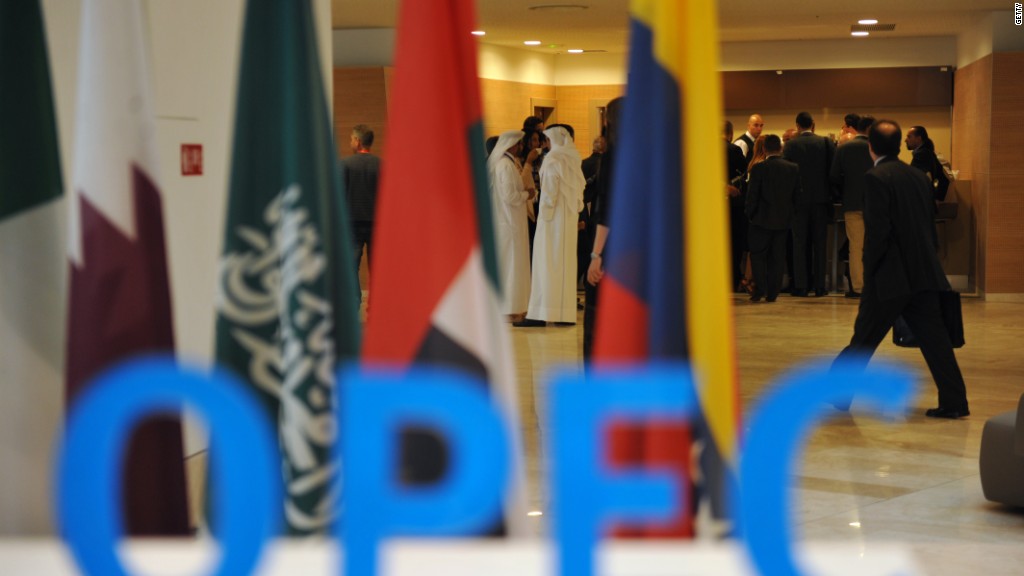
The amount of oil hitting world markets will continue to grow relentlessly if OPEC fails to agree production cuts, the International Energy Agency has warned.
And making the proposed cuts a reality will be very difficult.
"We can see the scale of the task ahead," said the Paris-based agency.
OPEC agreed in principle to cut oil production at a meeting in September, and the group's experts are working on a deal that would allocate production targets to individual members ahead of its next gathering on Nov. 30.
The reductions will have to be significant. IEA data show that October was another record-breaking month for the cartel, with crude output increasing by 230,000 barrels a day to more than 33.8 million barrels a day.
The agency said all of the cartel's members except Saudi Arabia are now pumping close to their total production capacity.
Nigeria saw the biggest increase in output in October, while supply in Iraq reached the highest levels on record.
Oil prices have been hovering around $45 per barrel, but OPEC is hoping that they will rise to between $50 and $60 per barrel. Anything higher than that could encourage other producers -- like U.S. shale companies -- to restart operations.
Related: Why OPEC's oil deal won't mean a spike in gas prices
Even if OPEC agrees to the cut, however, prices may not go up as much as the group hopes. That's because the cartel is just one part of the equation. The IEA expects Russia, the world's biggest crude oil producer, to increase its output by 230,000 barrels a day this year and by an additional 200,000 barrels a day in 2017.
Brazil, Kazakhstan and Canada are also expected to ramp up production in the months to come.
At the same time, forecasts for slowing global growth give little hope that demand will rebound anytime soon.
A global glut of oil supply caused prices to crash over the past two years, and the world's biggest oil producers had refused to cut production in order to defend their market share.


